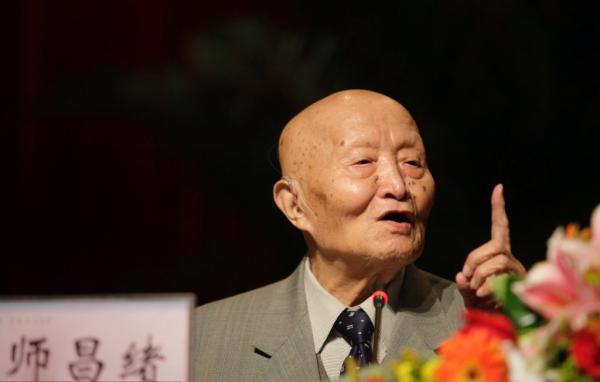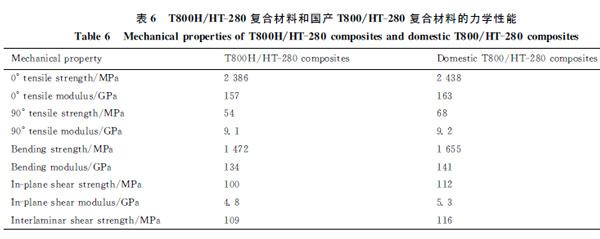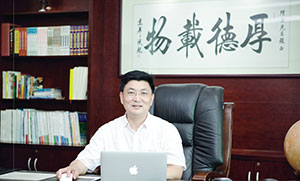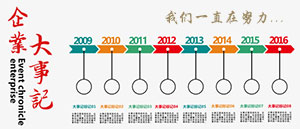Recently, the media reported that the T800 carbon fiber, which has been monopolized by foreign countries, has also declared low-cost localization in Harbin and its production cost is only one-third of the international price. While gradually replacing foreign products in the low-end market, it also broke the monopoly of foreign enterprises in the mid-to-high-end market. More valuable is that, according to the relevant units of the papers and test results, domestic T800-type carbon fiber performance is completely not lost in the same company in Japan Toray products, but in the local technical parameters is more has some advantages. Although China's carbon fiber industry is in a period of development today, it has experienced ups and downs so far.
Dilemma of independent research and development, technology introduction halvars sand
In 1959, Japan invented the method of making carbon fiber by using the raw material of polyacrylonitrile as a raw fiber and tension drafting. The West started commercialization in the 1970s and was subsequently applied to civil aviation and military applications due to the excellent properties of carbon fiber.
The research on China's carbon fiber began in the early 1960s. However, due to the harsh international environment at that time and the high technology blockade imposed by the West on such dual-use technologies as carbon fiber, coupled with the shortage of domestic resources, progress in carbon fiber research was relatively limited.
Until 1975, under the general deployment of General Zhang Aiping, joint research by more than 20 research institutes and enterprises finally solved the problem. However, these products also have certain flaws, such as mechanical properties relative to similar foreign products is relatively limited, the cost is relatively higher than similar foreign products.
In the following years, the state has invested more than 26 million yuan in research and development and production of carbon fibers to some extent to meet the needs of some national defense workers. However, there is a big problem - while the quality of products can not be compared with that of Japan, the cost is much higher than that of Japanese products, and the technical gap is getting bigger and bigger ...
It is precisely because of this situation, coupled with the immense worship of foreign technology in that particular era, many units pin their hopes on the introduction of advanced foreign technologies. A unit has also promised to provide financial support for the introduction of advanced foreign technologies.
However, as a result of the Treaty of the Treaty of Paris (Paris Co-ordination, an international organization that imposes embargoes and trade restrictions on socialist countries), the large international companies that are technologically the first tier are reluctant to China transfers technology and often suffers from political barriers even for the purchase of small quantities of equipment - the move by Shanghai Carbon Factory to try to import equipment from the United States ends with the U.S. Defense Department's intervention.
Therefore, the object of technology introduction can only be selected from those Western companies whose technologies are not mature enough in the middle and lower reaches. Eventually, the two units located in Jilin and Beijing chose RK in the UK. However, RK's technology is slightly higher than that in China, but Japan and the United States are not advanced at all. And although there is no clear evidence of RK's technical reservation or deliberate mischief, it is hard to keep people from conspiracy theories from the result point of view.
The two projects costed a total of about 9 million U.S. dollars. By 1990, the charring furnace of that unit in Jilin had not been able to operate normally. Beijing's unit had not succeeded in spending 7 years until it was "checked and accepted" in 1993, and the equipment remained the same Not working
Last resort, in the case of two sets of imported equipment are not functioning, the last can only be sold when the scrap metal. The failure of the introduction of technology not only cost a lot of money, but also a waste of valuable time, the tuition is not expensive. And because of the failure of the introduction of technology, leading to Japan and the technology gap even greater.
Summarize lessons learned to overcome difficulties
In 2000, carbon fiber research and development in China was at a low ebb. Only three units in China were reluctantly supporting it and only supplied small quantities to meet the needs of some part of the national defense industry.
In the midst of a critical crisis, Mr. Shi Changxu, a metallurgy and materials scientist, proposed to develop carbon fiber. Mr. Shi Changxu said: China's materials scientists have solved thousands of new materials needed for national defense. Carbon fiber preparation technology can not Breakthrough is a major mistake in material science and technology work ... Shi Changxu was nearly 80 years old at the time, after 80 years of age can have less control, but he would like to grab a carbon fiber, he did not think carbon fiber, Without any guarantee of national security, it will not be stopped.

Subsequently, a group headed by Mr. Shi Changxu was established, whose
daily work was presided over by Professor Li Kejian, responsible for the
research on the development strategy of polypropylene-based nitrile-based carbon
fibers. After several joint departments and units, held several meetings to
discuss the past mistakes in decision-making, research and development efforts
scattered, the efficiency of funds and other issues were discussed and formed a
four-point consensus: the importance of carbon fiber and the lack of technical
difficulty is correct Estimates; Seriously inadequate investment, serious
misuse; Failure to build a nation-wide research team; Lack of innovation and
innovation environment (Professor Li Kejian's opinion, though not enough in
depth, generally reflects the actual situation; if it is excessive, it may
affect Team unity).
It is these efforts that are of great significance not only to avoid
repeating the same mistakes but also to win the funding for the "Tenth
Five-year" research. Later, the National Natural Science Foundation of China
approved two key carbon fiber projects. In 2005, the carbon fiber project was
approved as a major national basic research project.
In order to promote the study of carbon fiber, Mr. Shi Changxu proposed to
concentrate superior forces, break the portal difference, organize the national
team, the development of units controlled in 2-3, the establishment of
competition mechanisms and other measures, these measures not only have a
positive effect on the concentration of key enterprises , But also increased the
efficiency of the use of funds and avoided the dilemma of "making a lot of
efforts to separate and do everything". R & D at the same time, do not give
up the opportunity to introduce technology, the introduction of the domestic
equivalent of Toray T300 carbon fiber production line (after all, T300 is
something in the 1970s, only the introduction of the 21st century hinder small),
the development of the industry Has played a role.
It is Shi Changxu and a number of older scientists who strongly promote,
and a large number of obscure young researchers of selfless dedication, and the
state's attention and a lot of capital investment, and two-legged approach to
China's carbon fiber industry Spent the hardest time
In recent years, the rapid development of China's carbon fiber industry,
the steady growth of carbon fiber production, the specific situation as shown
below.
However, we should also see the difference while seeing progress.
Currently, half of the international carbon fiber market is occupied by Japan,
with Japanese companies accounting for 49% of the world's small tow fiber
production capacity and Japanese companies accounting for 52% of global capacity
for large tow carbon fiber capacity.
Not only the production gap, in the product quality and use there is a gap,
the current domestic commercial production can not match Toray T1000 products,
in use, the domestic carbon fiber is mainly used for bicycles, golf clubs and
fishing rods Sports and leisure products, and can be used for aerospace carbon
fiber products are relatively small.
Domestic T800 can replace Toray similar products
The so-called T300, T800, T1000 and other titles, in fact, Japan's Toray's
carbon fiber models, but because of Toray's position in the industry, leading to
its models in the media coverage, virtually evolved into a similar intensity
Carbon fiber benchmark. In fact, we can see that Japanese companies in the field
of carbon fiber industry status.
In the field of integrated circuits, although Samsung's 14nm manufacturing
process and 14nm 14nm manufacturing process of Intel belong to the same, but
using Samsung technology out of the chip in terms of performance, power
consumption and other aspects of Intel's comparison there is a certain gap. So,
the domestic T800 and Japan Toray T800 also exist similar to the same T800, but
product performance is inferior to a lot of situation?
A paper published by China Aviation Composites Co., Ltd., Beijing Institute
of Aeronautical Materials, Key Laboratory of Advanced Composites, Institute of
Physics and Chemical Engineering, Beijing University of Aeronautics and
Astronautics, And Toray T800 carbon fiber made a very detailed test.
In the test, the researchers used S4800N cold field emission scanning
electron microscope made by Japan Hitachi Company to observe the surface
morphology of carbon fiber and calculate the fiber diameter. The D3000 atomic
force microscope produced by Veeco Company of USA was used to observe the
surface morphology of carbon fiber and analyze the surface roughness. The
surface composition of the carbon fiber was analyzed by X-ray photoelectron
spectrometer manufactured by UK Kratos Company. The micro-debonding testing
machine developed by Beijing University of Aeronautics and Astronautics was used
to test the interfacial shear strength between fiber and matrix resin. The 5982
material electronic universal testing machine produced by the American company
Instron was used to test the dry mechanical properties of the composite at room
temperature. Test shows that:
Compared with Toray T800H carbon fiber, the surface of domestic T800 carbon
fiber is rough in surface physical state, with denser trenches distributed along
the axial direction of fibers and deeper trenches, which is beneficial to
improve Domestic T800 carbon fiber and the matrix resin mechanical meshing
effect, thereby enhancing the interfacial properties of the composite
material.
(T800H carbon fiber and domestic T800 carbon fiber AFM photos)
As the carbon-carbon ratio of domestic T800 carbon fiber is about 31.2% of
that of T800 carbon fiber, which is about twice that of Toray T800H carbon
fiber, the domestic T800 carbon fiber can interact with the matrix resin through
chemical bonding or intermolecular force Improve the interfacial properties of
composites. Coupled with the aforementioned differences in the surface physical
state, making T800 carbon fiber and HT-280 resin can form a better interface
bonding.
The test also proves this point, Toray T800H carbon fiber and HT-280 resin
interfacial shear strength of about 92MPa, domestic T800 carbon fiber and HT-280
resin interfacial shear strength of about 117MPa, which is about 27 higher than
the former %.
In terms of mechanical properties, mechanical properties such as 0 °
tensile, 90 ° tensile, flexural, in-plane shear and interlaminar shear of
domestic T800 / HT-280 composites are generally higher than those of Toray T800
/ HT-280 material. Among them, the 90 ° tensile strength is about 25% higher,
the in-plane shear strength, the flexural strength about 12%, and the
interlaminar shear strength about 7% higher.
(SEM images of T800H / HT-280 composite and domestic T800 / HT-280
composite at 90 ° tensile failure)
A Chinese University of Hong Kong doctoral thesis also shows that: T800
domestic carbon fiber tensile strength average of 5.63GPa (Toray T800 of
5.49GPa), the average elastic modulus of 292GPa, the average elongation at break
1.9%, and Toray T800 carbon fiber products, indicating that the mechanical
properties of domestic carbon fiber fully reached the level of similar foreign
products, and the indicators Cv values are lower, better stability. Domestic
T800 carbon fiber 12K product elemental composition and surface activity and
Toray T800 carbon fiber 12K products more consistent. Domestic T800 carbon fiber
as a whole can be comparable to Japan Toray T800 products, can replace similar
products to be promoted abroad.
Conclusion
At present, Japan is the main producer of high-grade carbon fiber
materials. The T800 series carbon fiber from Japan Toray is the only carbon
fiber approved by the FAA for use in the key flight components of the Boeing
777. The importance of carbon fiber in the aviation industry is
self-evident.
Western countries have long imposed T800 series carbon fiber embargoes on
China in order to prevent China from using them to improve the performance of
military aircraft and gain competitiveness in international aerospace materials.
In 2013, Chinese businessmen were accused of illegally purchasing T800 series
carbon fibers in the United States.
It must be pointed out that although in the past domestic products can be
made comparable with foreign countries, but the cost is often higher than
similar foreign products. According to the website of Harbin People's Government
January 16, Tianshun Chemical Co., Ltd. will control the cost of large-scale
production of T800 carbon fiber to one-third of the international price, only
350 yuan / kg, which is technically able to compete with foreign countries
Competing for similar products at the same time, pricing also take the
initiative, which is the domestic T800 carbon fiber industry development and
commercial application is particularly crucial.





 News Center > Industry News >
News Center > Industry News >







